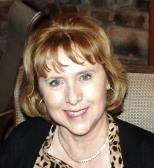 By Jenay Cottrell, Marin Area Agency on Aging/Aging and Adult Services
By Jenay Cottrell, Marin Area Agency on Aging/Aging and Adult Services“Even the most privileged of humans in the Western world will join a tragically disfavored caste if they live long enough. They will belong to the last caste of the human cycle, that of old age, people who are among the most demeaned of all citizens in the Western world, where youth is worshipped to forestall thoughts of death. A caste system spares no one.”
— Isabelle Wilkerson, Caste
During our 60s, we make a lot of decisions that chart the course for the rest of our lives, including:
- When to take Social Security: age 62, 67 or 70?
- What type of Medicare to take: Original or an Advantage plan?
- When to retire: before or after we get Medicare at age 65?
- Whether to downsize and move to a more affordable area.
It’s also a good time to create your own definition of aging for yourself. Don’t let someone else’s misguided attitudes and obliviousness about aging – like what that caste quote above puts forth — impose what you are or will be as an older adult. Don’t let others define your value to yourself, your family, your place of work, your community. Don’t let others define how you look at other older adults either.
That quote represents the definition of ageism and perpetuates it. Like all “isms,” such as ableism and racism, ageism reflects ignorance. However, ageism is particularly inexplicable to me. That’s because every person on this planet is aging every minute of every day. It’s a natural part of life. Essentially, ageism is discrimination against time. Thus, to be ageist is to be prejudice against and devalue yourself as well as others.
So how do we combat ageism and define the true worth of older adults based on what really counts?
- Recognize and celebrate that aging is as individual as each person is unique.
- Recognize that even when our knees and eyes or memory may not be as nimble as they once were or that even when we have a disability, we still have tremendous value. After all, we’ve been there and done that! And a lot more of it than younger generations!
- Recognize that some older adults may need support to get to the doctor, have a nutritious meal delivered, or to connect to the rest of the world.
- Recognize needing such support is not weakness but is a small return investment on how older adults built much of what we all benefit from in our society. Such support makes the world of difference in keeping older adults physically and mentally healthy and thus more able to live in our community instead of a facility.
- Recognize that with age comes experience, wisdom and perspective which complement youth and energy. An African proverb reminds us, “The Youth can walk faster but the elder knows the road.”
- Recognize and promote this dynamic to help those who believe in age casting to stop discriminating against others and themselves and their own future.
Two other quotes that also serve as counterpoints to the aging cast quote wrap up all the forementioned thoughts well. Actress Francis McDormand said, “I think ageism is a cultural illness. It’s not a personal illness.” And from author Betty Freidan, “Aging is not lost youth but a new stage of opportunities and strength.”


